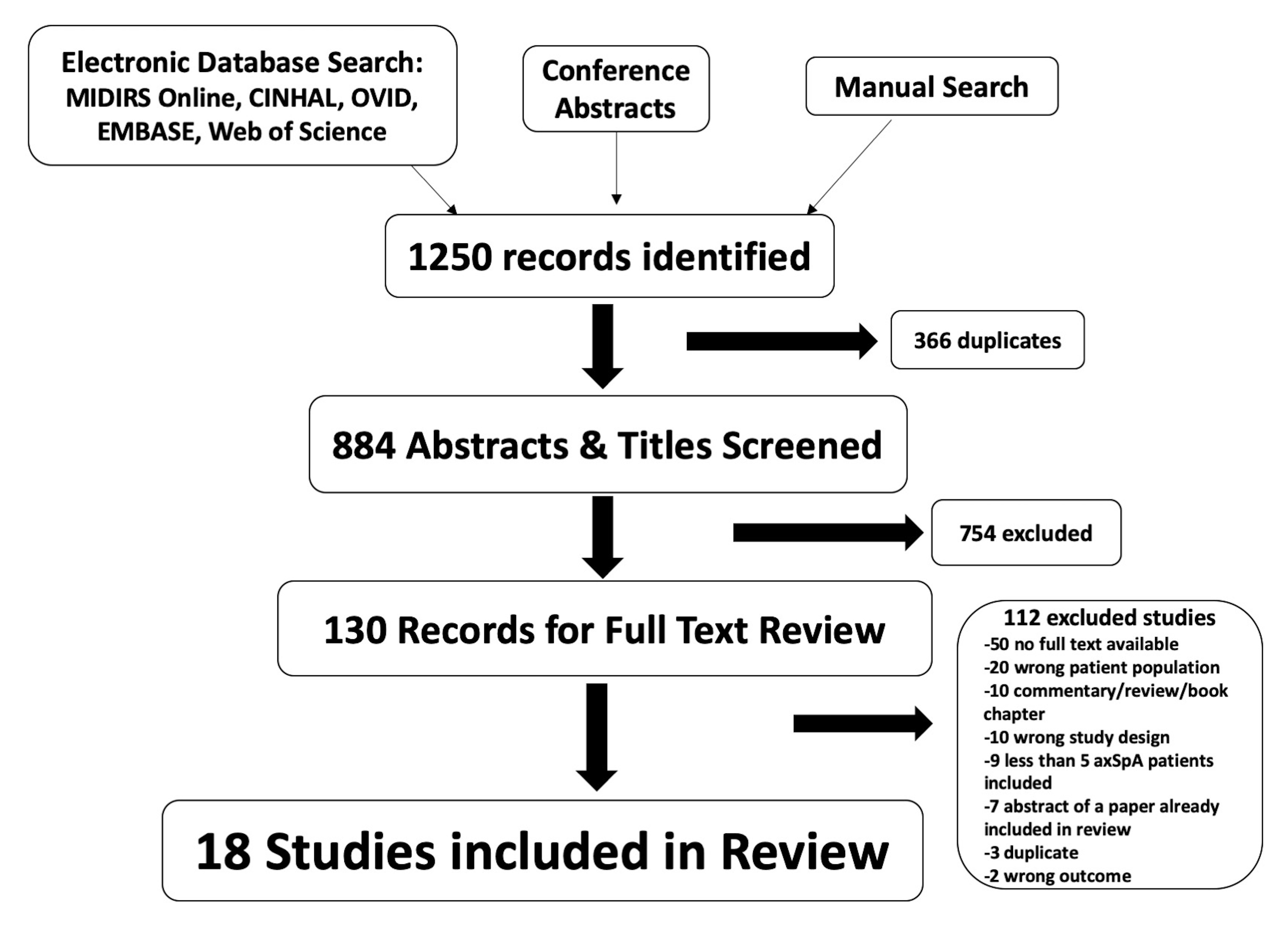Session Information
Date: Sunday, November 8, 2020
Session Type: Poster Session C
Session Time: 9:00AM-11:00AM
Background/Purpose: Axial spondyloarthropathy (axSpA) is an inflammatory arthritis affecting the sacroiliac joints and the spine. Although this chronic condition affects a wide range of ages, many females affected are of childbearing age. At present it is unclear how axSpA affects pregnancy, in terms of prevalence of pregnancy related complications and foetal outcomes. Similarly, studies exploring the effects of pregnancy on axSpA disease activity and medication use have been limited, with divergent conclusions drawn. Studies of women with other forms of inflammatory arthritis have suggested improved disease control during pregnancy with increased risk of postpartum flares. It is unknown if axSpA follows this pattern.
Methods: A systematic review of case-controlled trials, observational studies, cross sectional studies and case series (n >5) focusing on axSpA in pregnancy. Studies were compiled by searching EMBASE, Medline (OVID), CINAHL, Maternity and Infant Care (MIDIRS online), and Web of Science from time of inception to September 2019 for key words related to axSpA, pregnancy, and pregnancy complications. Two reviewers independently reviewed articles to determine suitability for inclusion. The Newcastle & Ottawa Scale was used to asses risk of bias. Data extraction was performed using a standardized template to streamline data to allow comparison and meta-analysis. Where suitable data was assessed for suitability for pooling with a random effects model. Statistical heterogeneity was assessed by confidence interval overlap of the odds ratio, chi2 test output and output of the I2 statistic. Studies with high heterogeneity were assessed with sensitivity analysis and calculation of a weighted pooled means. The protocol for this review was prospectively registered with an international registry for systematic reviews (PROSPERO, Ref CRD42020147814).
Results: The search strategy returned 884 records. Of these, 130 full text articles were assessed for eligibility. Following assessment by two reviewers, 18 studies with a total of 3,166 axSpA women were eligible for inclusion in this review. There was an increase in the prevalence of pre-eclampsia (OR 1.3, 95% CI 0.92-1.82) and IUGR (OR 1.17, 95% CI 0.26-5.17) and a statistically significant increase in prevalence of cesarean section (OR 1.85, 95% CI: 1.46-2.30) in axSpA females (table 1). Prevalence of all analyzed fetal complications was higher in axSpA pregnancies (table 2), this did not reach significance. Disease activity during pregnancy varied significantly, but overall 47.8% of patients assessed by standardized outcomes reported increased disease activity in pregnancy. Few studies examined medication usage in pregnancy.
Conclusion: Females with axSpA overall have significantly higher prevalence of cesarean section then the general population. This analysis suggests a trend towards higher rates of pre-eclampsia, IUGR and a number of fetal complications, although further research is needed to explore this. There is a risk of active disease in pregnancy for a high proportion of axSpA females. Medication usage varied with time and country. Ongoing development of national registries could help to better understand axSpA in pregnancy.
 Table 1: Summary of Pregnancy Complications
Table 1: Summary of Pregnancy Complications
 Table 2: Summary of Fetal Complications
Table 2: Summary of Fetal Complications
To cite this abstract in AMA style:
Maguire S, O'Dwyer T, Wilson F, Mockler D, O'Shea F. Pregnancy in Axial Spondyloarthropathy: A Systematic Review & Meta-Analysis [abstract]. Arthritis Rheumatol. 2020; 72 (suppl 10). https://acrabstracts.org/abstract/pregnancy-in-axial-spondyloarthropathy-a-systematic-review-meta-analysis/. Accessed .« Back to ACR Convergence 2020
ACR Meeting Abstracts - https://acrabstracts.org/abstract/pregnancy-in-axial-spondyloarthropathy-a-systematic-review-meta-analysis/

